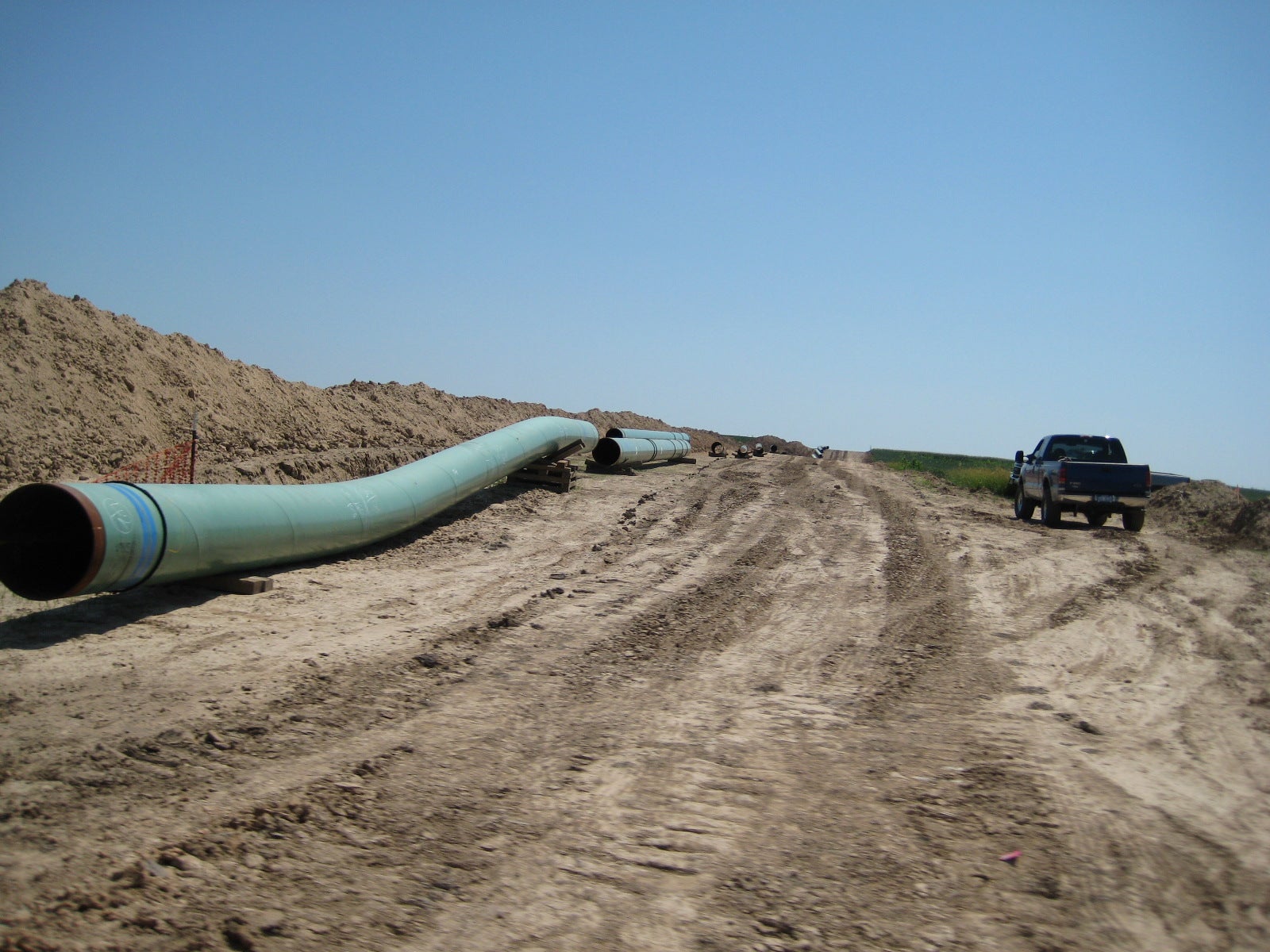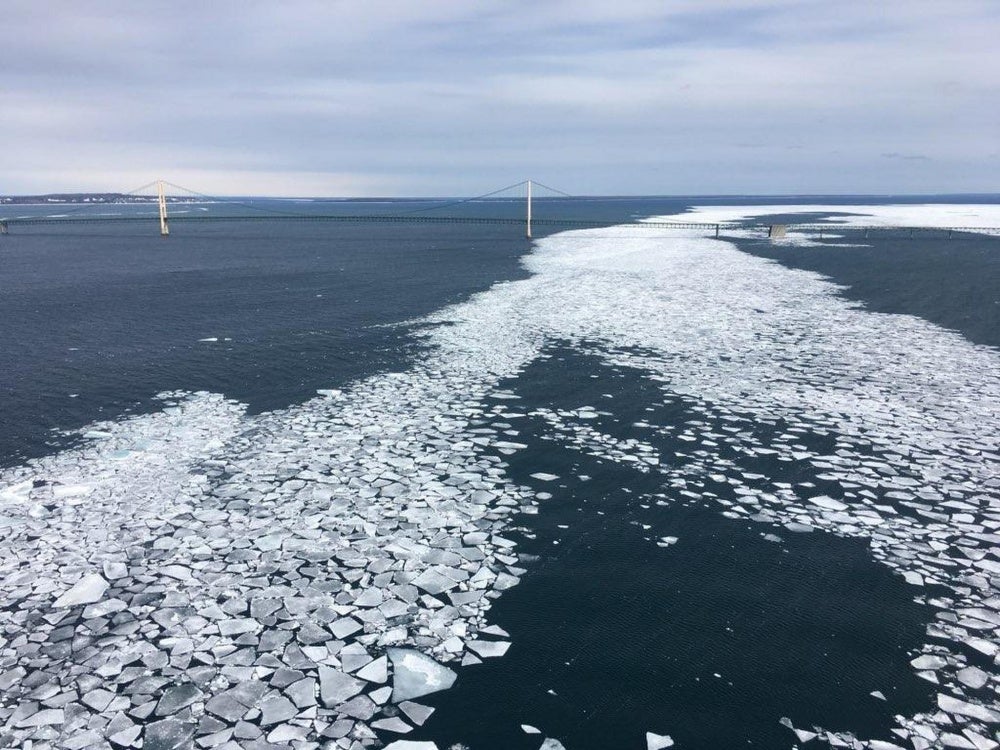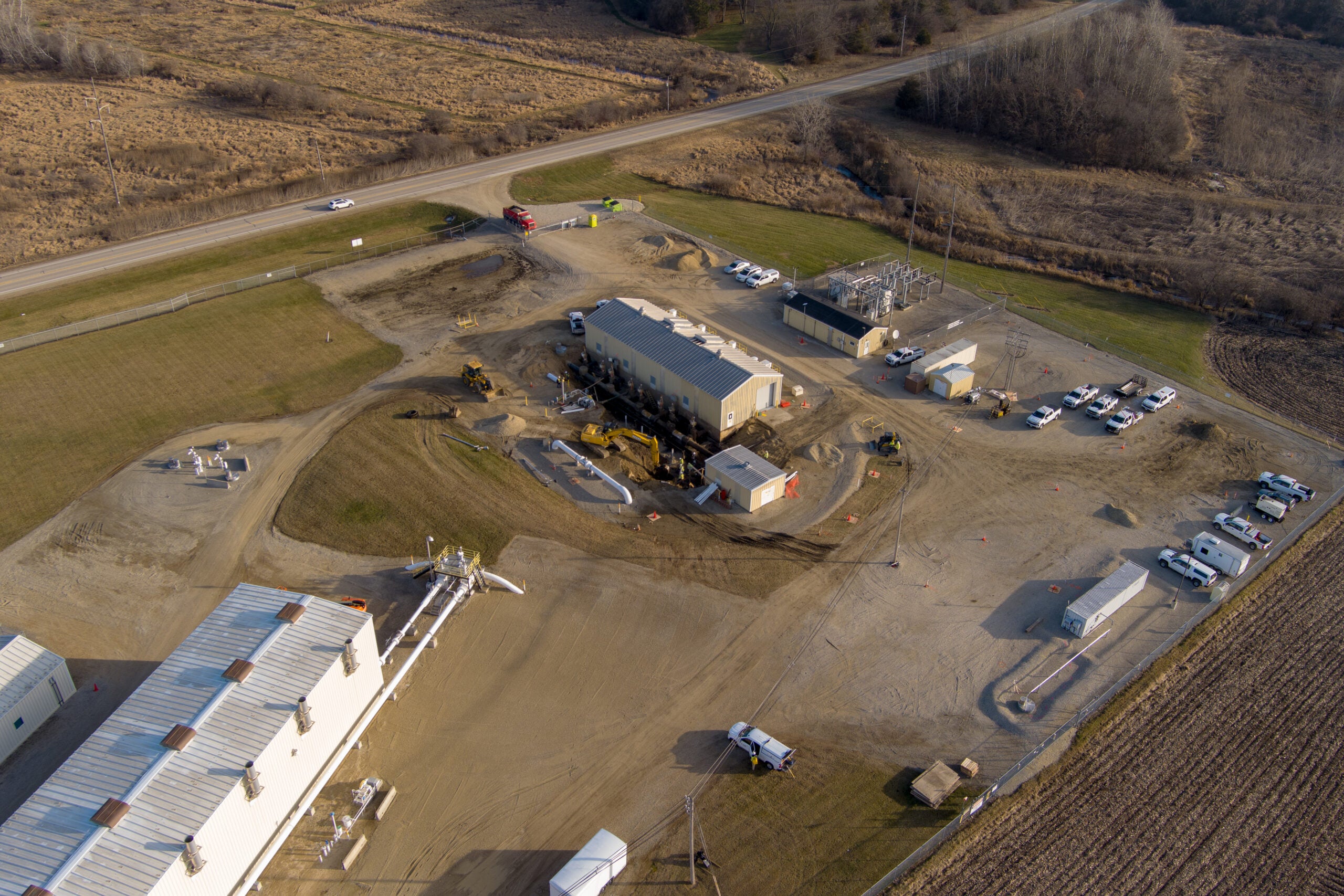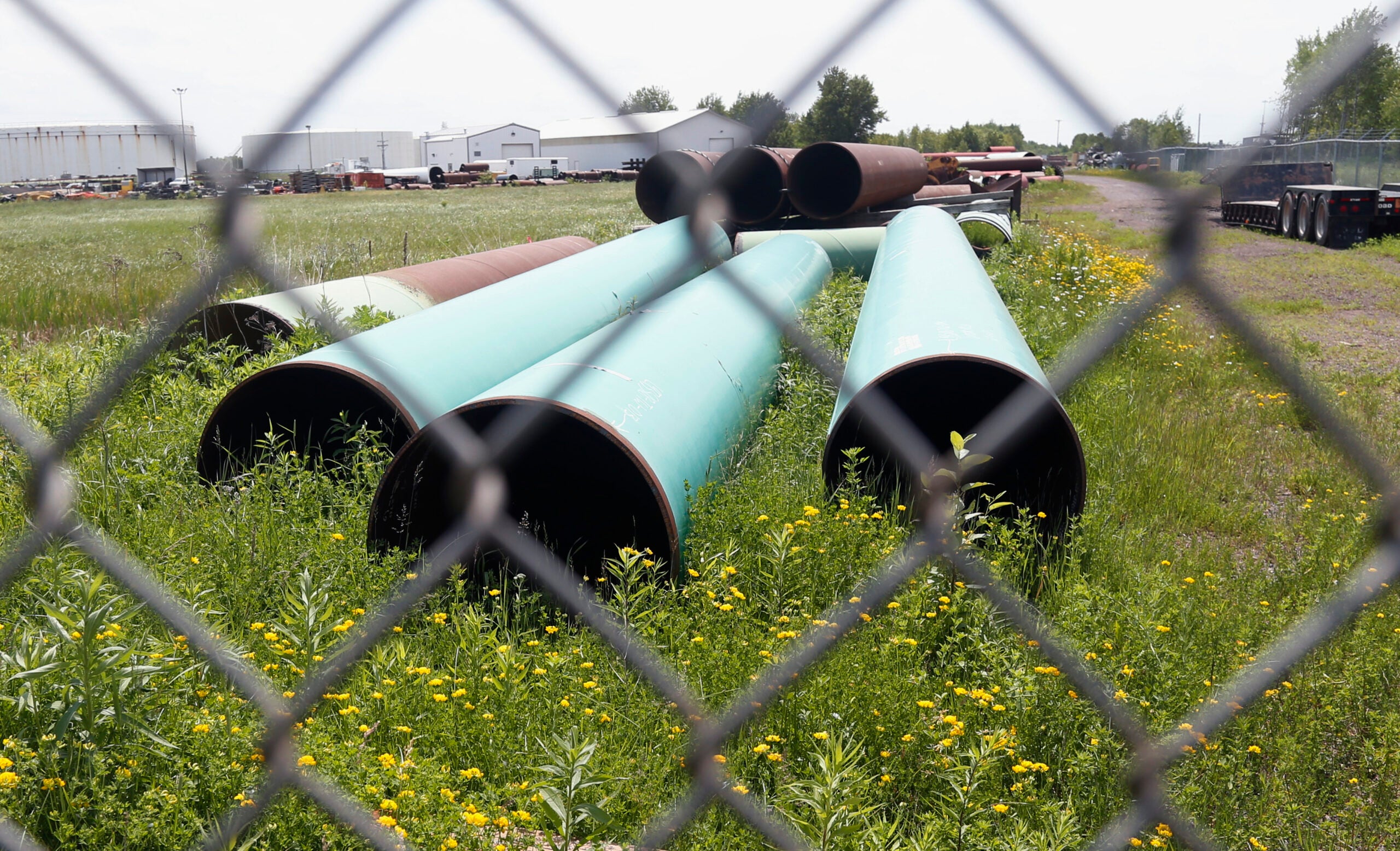The last section of one of the highest capacity pipelines from the North Dakota Bakken oil fields will get a hearing in Superior later this month, but an environmental group is crying foul because it says it’s combining two pipeline projects.
This is a public meeting asking people to say what the scope of issues of concern should be for the 616-mile Sandpiper pipeline from North Dakota to Superior. Since Enbridge Energy needs approval from the state of Wisconsin, this hearing will cover the last leg, just 14 miles from Minnesota to the Superior oil terminal.
Ben Callan, state Department of Natural Resources zoning regulations specialist, said that they want to hear a wide range of concerns.
Stay informed on the latest news
Sign up for WPR’s email newsletter.
“(We want) everything — environmental, social, economic,” he said. “We’re really trying to put together a comprehensive document regarding all of the potential impacts from a project like this.”
But this Aug. 25 meeting in Superior also includes Enbridge pipeline 3, which would be rebuilt along the Sandpiper route carrying crude from Canada’s Alberta tar sands.
Elizabeth Ward, conservation programs coordinator for Sierra Club – John Muir Chapter, said that makes this hearing especially important.
“Because it’s not just Sandpiper,” she said. “We were surprised to see that, but the DNR actually planned to combine the public input process for line 3.”
She said it’s a double-dose of bad news for them because the lines will carry Bakken crude and Alberta crude — considered volatile and its extraction releases more greenhouse gases. Ward said they’ll talk about the danger of oil spills, too.
“We want to make sure that something like that doesn’t happen in Wisconsin, especially in an area like Superior, where it’s so water rich and right next to our most precious water resource,” she said.
The public comment period will be open through Sept. 30. Then, DNR officials will prepare a draft Environmental Impact Statement which itself requires a public hearing. Then, they’ll decide whether or not to grant the permit sometime next year.
Wisconsin Public Radio, © Copyright 2025, Board of Regents of the University of Wisconsin System and Wisconsin Educational Communications Board.




